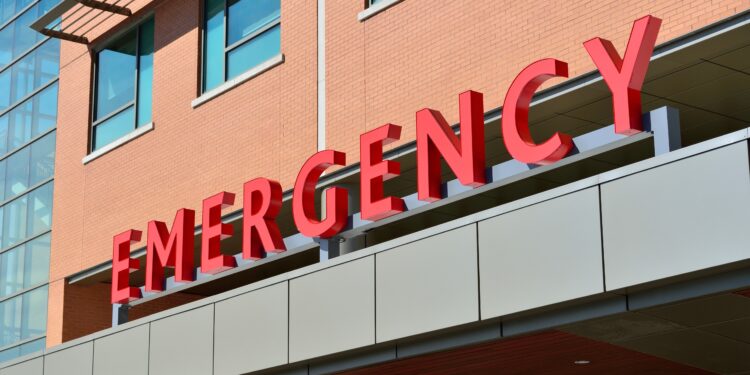
I recently decided I was going to leave my role as an Emergency Medicine doctor in the UK National Health Service (NHS).
The pandemic brought something very different into our lives. Something we had never seen before. A sense of threat and dread, tempered by a will to continue to do your duty. To do the job that you were trained to do and expected to do.
Leaving the NHS was not an easy decision. The past few months have given me a period to reflect on what it was that finally nudged me in that direction, and it came down to two words. Silent. Expectations.
What do I mean by this? This is always a fascinating coaching question- the language we use can be so revealing about what is going on within our thought processes.
For me, silent expectations are the unspoken things that are asked of us, without anything ever being said. Often, they are things that we feel can’t or shouldn’t be said out loud.
I believe that silent expectations are a big reason why many doctors are left feeling that they can’t continue in roles they have been in for many years. And it leaves them feeling guilty about making that decision.
The decision to remove some of the pressure from themselves, and in some cases leaving what has gradually become a toxic environment.
I still firmly believe in the founding principles of the NHS. I love that, in contrast to many other countries, someone in genuine medical need can access appropriate healthcare without first considering if they can afford it.
I still believe in justice, and fairness and that our society should be judged by how we look after the most vulnerable among us. I believe in making a difference- but it no longer felt like this was what I was doing.
Despite my beliefs, I just could not continue to do the job I was doing, without risking profound damage to my own health and well-being. The additional investment of my time and energy needed, I suspect, would have placed significant stress on all the other relationships in my life.
Despite my beliefs, I just could not continue to do the job I was doing, without risking profound damage to my own health and well-being. The additional investment of my time and energy needed, I suspect, would have placed significant stress on all the other relationships in my life.
At the time of writing, I am in my early forties, with many good working years still ahead of me potentially. I was left with a difficult choice. I could have continued to grind on, in a situation that was making me increasingly unhappy and unwell.
Or I could make the decision to do what had always been unthinkable– to leave a system I admired and had worked in for nearly two decades.
Quitting always seemed to be what ‘other’ people did. Not that I ever regarded any of them as weaker than me, or just not cut out for the job. I just did not understand at that time why they left. And then I would mentally move on, whilst other people continued to quit around me.
Looking back, I only really started to consider leaving in the last six months. There have been many ups and downs over the years. A mixed bag of emotions, some repressed and some expressed. That was always the case with my job, with the specialism that I chose: Emergency Medicine.
I have worked with some great people and teams, through difficult times, but there was always light at the end of the tunnel.
While the world as we knew it was shutting down due to COVID, healthcare professionals globally were preparing for the unknown. I experienced a sense of anxiety that I had never had before. What was I about to see, what would I have to do? I anticipated long hours and difficult decisions ahead. I was not wrong.
We looked at what was happening in Italy at the time with dread, convinced we were about to face the same,.I worried about losing family, friends, and colleagues. Would I lose the genetic lottery and be one of the critically ill? Would I die? Who would be left standing when it’s all over?
In the end, there were challenges, but they were not the ones we were expecting. The forewarning of countries like Italy allowed us to be better prepared.
Instead, we faced a curious situation in our ER Department. Attendances almost halved in number, peppered with the occasional person who we knew was going to have a torrid time ahead of them fighting the virus.
Our critical care areas had to expand to accommodate all the people fighting long battles of organ systems versus the first new virus.
For the first time it seemed that elements of the public were attacking the same healthcare professionals that could be saving their lives. Hospital teams (and NHS staff in general) faced inexplicable accusations about what they were, and were not, doing during that time from people who did not or could not believe what was happening. We were accused of being liars, and killers.
Colleagues in Primary Care were accused of being lazy, cowards, and ‘not seeing patients’. These, it goes without saying, were manifestly untrue.
Difficult decisions were made about how best to protect your family at home, with some people even moving out during the initial stages of the pandemic. Thinking twice about whether to hug your family when you get home from a shift. All of this contributed to my decision to quit medicine.
Over time our activity drifted back to normal. As new variants popped up, we would see clusters of cases come through, the severity of illness varying widely with each person.
Pandemic research meant we all had to keep up to date with the latest in diagnostics and treatment, endeavoring to always do the best for each and every patient in our care.
Over time people grew tired of the war footing we had adopted, and they craved a return to their respective normalities. What emerged from the battlefield fog was not so much new dawn, but the beginning of a fresh storm.
During my career in the NHS, it had always felt like we were a surfer riding a huge wave, but we are slightly behind where we should be to exit the wave safely. Always working and living with the threat that at any time we could be dragged under the surface.
When the post-pandemic era began it felt like that wave was beginning to crash down on top of us.
What was always a complex and slightly fragmented system felt like it had been completely broken open. The NHS has become so ingrained in our political system, it seems that governments are almost afraid to make changes in case it proves to be a fatal move for their administration. So, the status quo continues.
And in the meantime, patients are left to try and navigate an increasingly complex and overstretched system. A potentially deadly combination of increased demand and reduced capacity.
As service after service reaches its full capacity and beyond, the people who rely on these services do not know where to go for the help they need.
All of these factors led me do decide that I no longer wanted to commit my daily energies to a system that was causing me to burn out.
